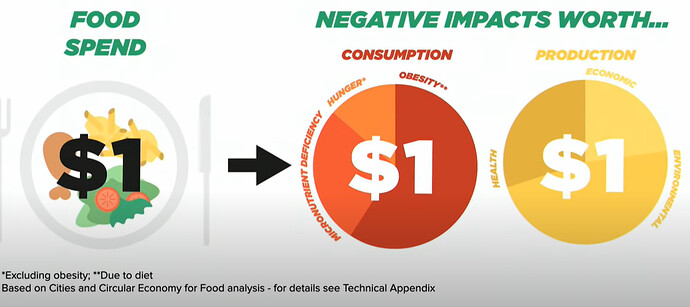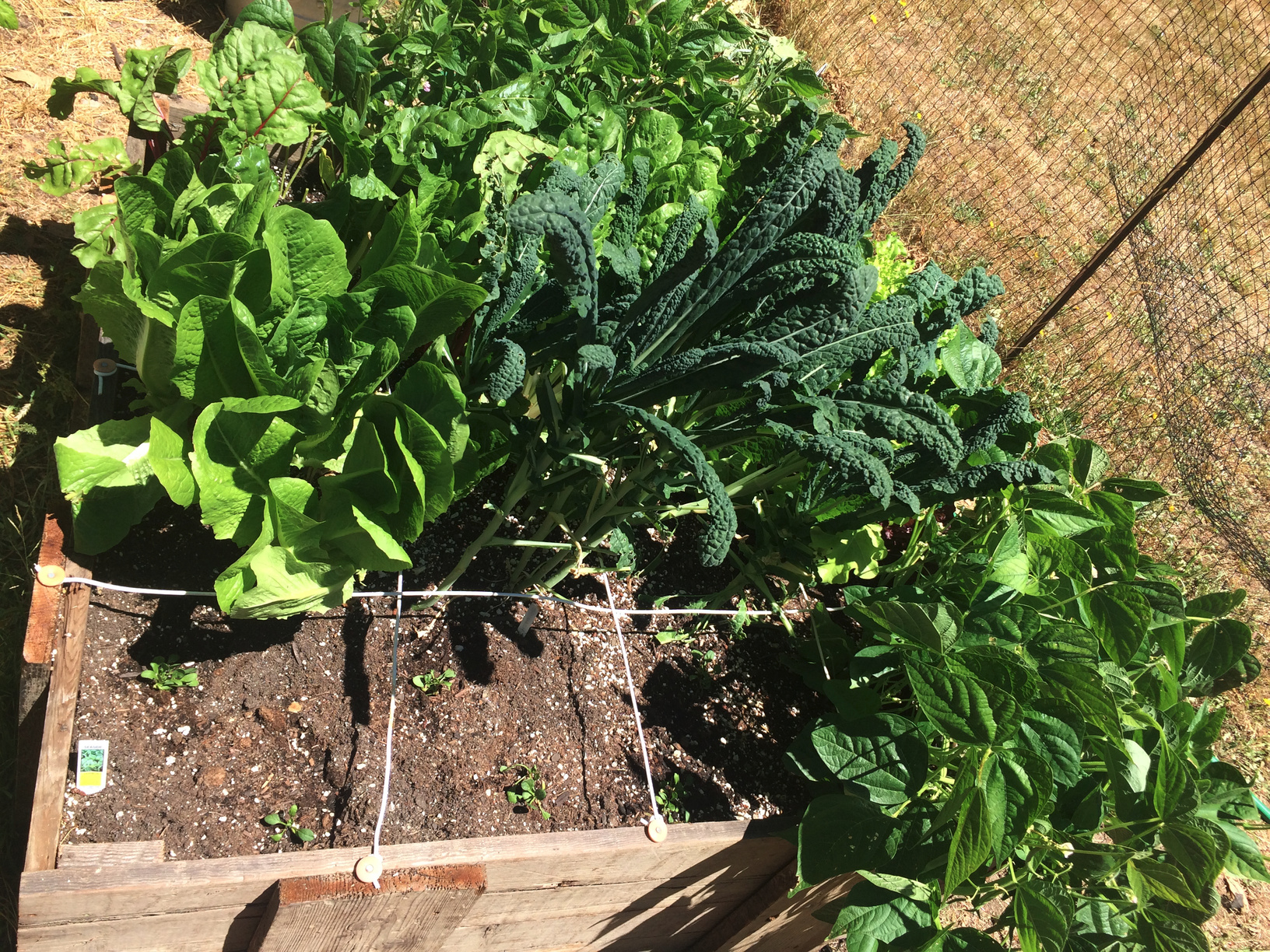Hi all, after the session on Community support for food projects I spent quite some time reading up on new things. I relay here some things I learned from a web series hosted a few weeks ago by the Ellen MarArthur Foundation - a global charity supporting the acceleration to a circular economy.
‘The covid19 crisis has shown us we have a greater need than ever to create a distributed, diverse and regenerative food system’
Screenshot from youtube video
Context
In the current linear economy, our food system is extractive and damaging to the environment by endless depletion. The Foundation calculated that for every 1 dollar that we spend on food, there’s an equivalent of 2 dollars of negative environmental and health impacts, tied to the way we produce and consume food: air quality, antimicrobial resistance, health impact to farmers, and obesity, malnutrition effects on consumers.
Perhaps more than any other units, cities are key players for transformation: 68% of the world’s population will live in them by 2050, consuming 80% of the world’s food. Cities have evolved to work with high distance supply chains. Colonization and the discovery of corn and sugar brought about food systems that are translocal, with severe transformations of the countrysides from suppliers of the city into a marginal economic source.
The urban paradox: we like to talk about ourselves as urban, but we need resources that live in the natural world, which means that the urban identity is only a context we have created, whereas we’ve forgotten about our real source of life and how good governance, the responsibility of feeding people needs to take into account the real landscape in which we exist - urban and rural. In addition, carbon zero lifestyles means people need to have access to the rural economy as much as the urban economy.
How do you maximize the urban/rural interface?
I found it interesting that ‘the close proximity of citizens, retailers, and service providers (40% of cropland is within 20km of cities) makes new circuits possible.’ For food businesses, this means to use regenerative practices for cultivating animal or vegetable products; source, design, market as much healthy, local and seasonal food as possible, and avoid waste.
- tapping into the latent fertility present in many cities. We now have the opportunity to question the existing trajectory. We notice how spending time at home and cooking from scratch, or connecting with local producers can be very rewarding. The focus here is greening the cities, supporting communities to create more territorial systems, like backyard urban gardens for example.
- reorganising land: We need to learn to work with small pieces of land because it’s extremely difficult to actually get access to land and farm it in cities; In the rural side, producers are struggling economically, with draught etc. and their kids are becoming engineers in cities, so increasing capacity around working land is important.
- reconstruction of the networks. Example: build on creativity burst in restaurants reinventing how to sell food, local farmers accessing new markets. In Quebec, an organisation called Table du Chef which started to recover food waste, when the covid19 came, the chefs got together and started producing massive quantities of quality food to distribute 2 million meals inside the city, through a ‘cuisine solidaire’, using abandoned fancy hotel kitchens to cook. In Brussels and other cities we have seen similar partnerships between restaurants and local farmers.
The role of chefs, food designers and food service companies in the transition to a circular economy
Restaurants and food services in particular influence what people eat, especially given that people are eating out more and more (90% of people in some Asian countries eat out every day!). So they have a lot of capacity for transformation. What’s more, the tendency (in high cuisine I think!) is for chefs to become micro-regional chefs, rediscovering and connecting back to ancient foods and recipes. Fermentation is a good example of knowledge that has been distilled by generations, yet it is only now becoming trendy.
The practices presented were:
- build new stories around uncommon foods in urban diets, i.e. indigenous food crops, lesser known types of grains; ‘When you taste biodiversity, there is a new meaning’;
- play on the health benefits of local foods as opposed to heavily processed supermarket foods
- promote how farmers’ livelihoods depend on this local food consumption, because often these ingredients come from subsistence farming;
- use wasted products to uncover new ingredients from unexpected sources of ‘deliciousness’ i.e. fishbones, roots and leaves not traditionally eaten; leftover sunflower seeds to make cheese (!)
Some project ideas which now make the rounds of what constitutes circular food:
- ready meal services that use only food surpluses
- meat replacements: using mushrooms in burger patties, bean curd (‘yuba’) to mimic chicken skins
- packaging using by-products from i.e. pasta production
- … many more! There are different food competitions, including one by Thought for Food supported by the MarcArthur Foundation, but it remains to be seen how new companies will put the innovations in service of positive impact.
A final section of the series was dedicated to regenerative practices and how we could be using urban organic wasteflows for production purposes after. I skipped it, but the video is here, if anyone is interested.
This all seems too good - I was disappointed to see that challenges to make this transition were not discussed… and we sure know there are many, including for the very survival of good food entrepreneurs and projects!
If any of these is relevant to you, I’d be curious to learn how are you involved in your city transformation? Are you a fan of the circular economy? Are you struggling to recover after covid19? Let’s talk!
Resources:
-
Book: Hungry City: How Food Shapes our Lives (2008), by Carolyn Steel
-
A compelling overview of the central role of cities in the food system:
Food and the circular economy -
The Big Food playlist is available here:
https://www.youtube.com/playlist?list=PLXT_ozykGVakKaiQzofTeT1liqfyZGrnk


 which makes it all the more telling.
which makes it all the more telling.